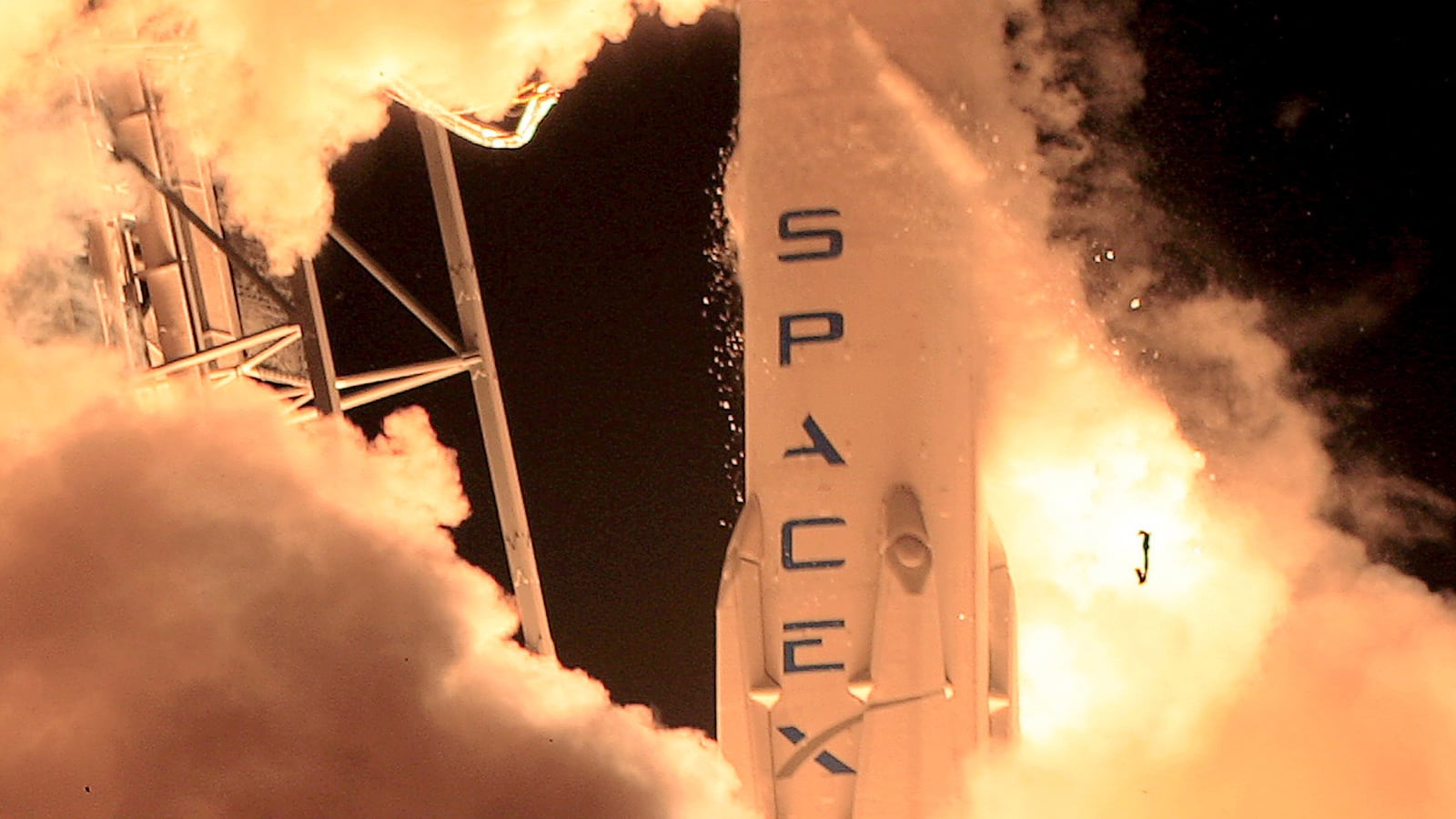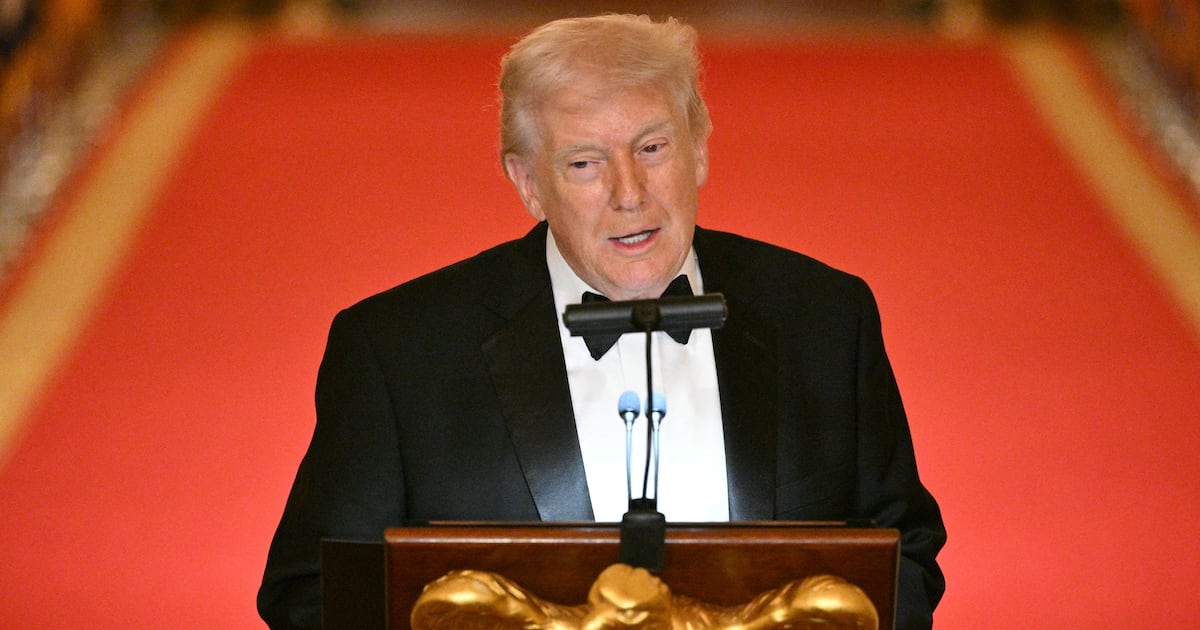Outer space just got a bit more litigious.
Irvine, California-based computer chip-maker Broadcom has sued SpaceX—billionaire Elon Musk’s Hawthorne, California, space-exploration startup—for allegedly poaching five highly skilled engineers following failed negotiations between the two companies.
This is not SpaceX’s first legal entanglement. And it surely won’t be the company’s last, as it also targets a lucrative government-endorsed rocket monopoly.
Broadcom, which employs more than 11,000 people and did around $7 billion in business in 2015, filed a lawsuit in an Orange County court on March 23 alleging that SpaceX lured away five Broadcom engineers and put them to work developing new communication technology, rather than paying Broadcom to perform the same work.
SpaceX, which does not disclose its revenue, builds and launches rockets for commercial and government customers including NASA. In December, the company successfully launched, and safely landed, a reusable Falcon rocket—the first demonstration of multi-use rockets that SpaceX believes will help drive down the cost of exploring space.
Engineers Alireza Tarighat, Bagher Afshar, Ahmad Mirzaei, Masoud Kahrizi, and Ali Sajjadi all resigned from Broadcom on March 11 and promptly went to work for SpaceX.
Musk’s firm poached the engineers “to procure a family of sophisticated, customized computer chips without bearing all of the research and development costs inevitably involved in creating such chips,” Broadcom claimed in its lawsuit.
In other words, the chip-maker had invested time and money in developing new chips, the company asserted. And since the engineers had signed nondisclosure agreements, they could not legally continue the same work as SpaceX employees, Broadcom claimed.
“SpaceX did not pursue or lure engineers from Broadcom,” SpaceX spokesman Phillip Larson told The Daily Beast. A Broadcom spokesperson did not respond to a request for comment.
The lawsuit has its roots in 2015. SpaceX was looking for a new supplier to develop technology “to support SpaceX operations,” according to Larson. SpaceX approached Broadcom, and the two companies signed a nondisclosure agreement so they could freely exchange ideas. The chip-maker claimed it put its best engineers on the SpaceX project and that they spent hundreds of hours writing a proposal in the hope of securing a contract from the exploration firm.
But SpaceX ultimately found the chip-maker’s proposal “lacking” and rejected it, Larson told The Daily Beast.
Shortly thereafter, the five engineers—all of whom had worked on the SpaceX proposal—left Broadcom for SpaceX. To Broadcom, the circumstances looked mighty suspicious—as if SpaceX never seriously considered hiring Broadcom and only wanted to identify the company’s best engineers so it could lure them away to do the same work in-house.
But Larson said SpaceX never did anything to entice the engineers. “On the contrary, these engineers reached out to SpaceX anticipating significant layoffs at the Broadcom Irvine location,” he said. Sure enough, in February Broadcom announced plans to lay off as many as 700 people in Irvine.
And Larson insisted SpaceX will honor the nondisclosure agreement it signed with Broadcom. The engineers who quit Broadcom to work at SpaceX won’t be working on the same technology SpaceX had considered hiring Broadcom to develop, he said. “SpaceX has no intention of executing to the content presented in the Broadcom proposal,” Larson said.
Orange County judge Randall Sherman has, so far, sided with SpaceX. On March 24, Sherman rejected Broadcom’s request for a restraining order that would bar SpaceX from “utilizing the services” of the five engineers.
Sherman repeatedly scrawled “denied” on Broadcom’s request.
Broadcom is a small player compared to some of the other organizations SpaceX could meet in court. In 2014, SpaceX sued the U.S. Air Force for refusing to open its rocket-launch contracts to competition.
For years the Air Force has hired just one rocket company—United Launch Alliance, a consortium of defense giants Boeing and Lockheed Martin. Because the Air Force refused to consider competing bids, ULA has enjoyed a de facto monopoly of government launch business worth about $1 billion a year.
SpaceX dropped its lawsuit in 2015 after the Air Force vowed to hold an open competition for rocket launches starting in 2019. But SpaceX is reportedly primed to sue if the Air Force goes back on its promise. “SpaceX will take them to court if they don’t demonstrate the ability to allow competition,” Brett Tobey, then ULA’s vice president of engineering, told an audience at the University of Colorado on March 15.
If the Broadcom complaint is any indication, by then SpaceX will surely have lots of experience filing, and fending off, bitter lawsuits.






